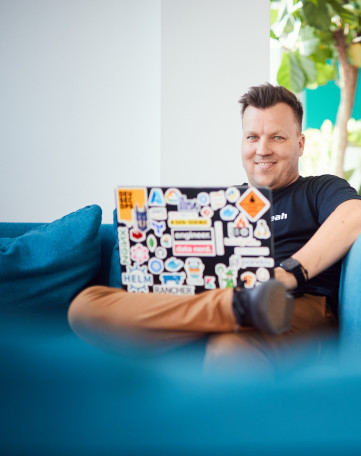Stefan, tell us briefly about yourself and the Digital Labs.
After training as an IT specialist, I worked at various companies, including Deutsche Börse and an IT consulting firm. In 2009, I joined Evonik, initially in the Linux server area, and in 2016, I joined Digital Labs, which was founded at that time. The name Digital Labs fits quite well: we evaluate new technologies such as quantum computing for Evonik and consider what benefits we could derive from them as a specialty chemicals company.
And we also apply new technologies, of course. Colleagues from other parts of the group usually come to us because they want us to solve a problem for them. Initially, that's nothing unusual - after all, that's what IT is there for. Unlike traditional IT departments, we have the freedom to look for the best possible solution, with an open approach to technology. For example, we have experimented with blockchain to make pharmaceutical products counterfeit-proof. Usually, our work ends with a prototype; then we hand over the projects to other IT departments for operationalization.
What does your work in the Digital Labs look like?
I deal a lot with machine learning. However, that doesn't work without a lot of good data and, of course, software development. Accordingly, I am now very knowledgeable in all of these areas and am constantly learning. That's exactly what I like about my work: every new project brings exciting new challenges. We always develop as a team and work iteratively in Scrum sprints. After just a few days, we show our clients the first results to find out whether we're going in the right direction or need to change course. It is in the nature of our work that we try out many things, but also discard many things. That's just part of it.
How is the collaboration in your team?
We are a super team. Although the lab’s total of 22 employees are spread across three continents, we work great together. You can see that in our virtual coffee rounds, where we laugh a lot and talk about personal things. I think that's because we're all passionate about our topics; we have a common passion for digging into new technologies, developing software, and driving things forward. Our error culture is right. Mistakes can be made, and we deal with them very openly. That creates trust. All in all, working in the Digital Labs is pretty great.



